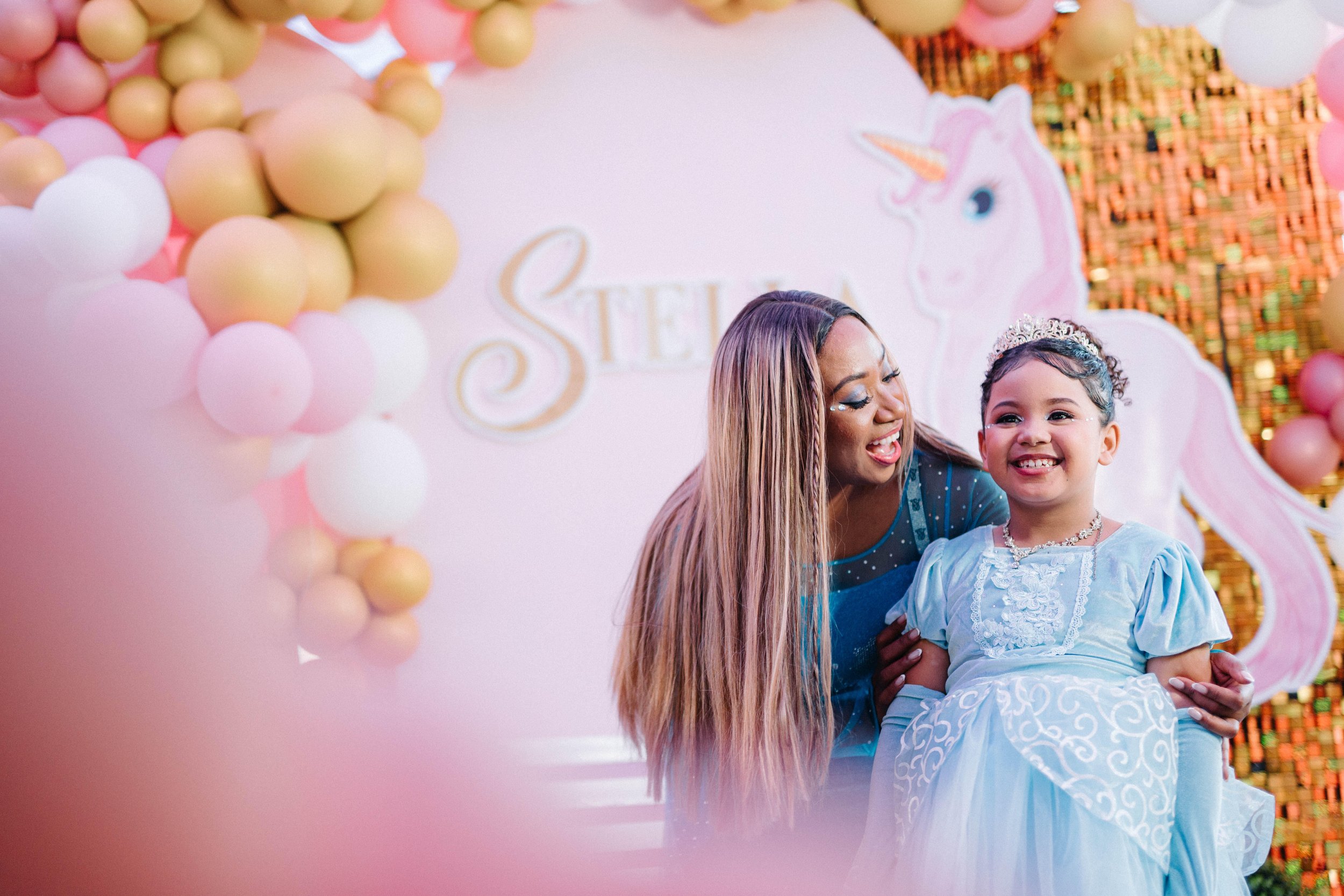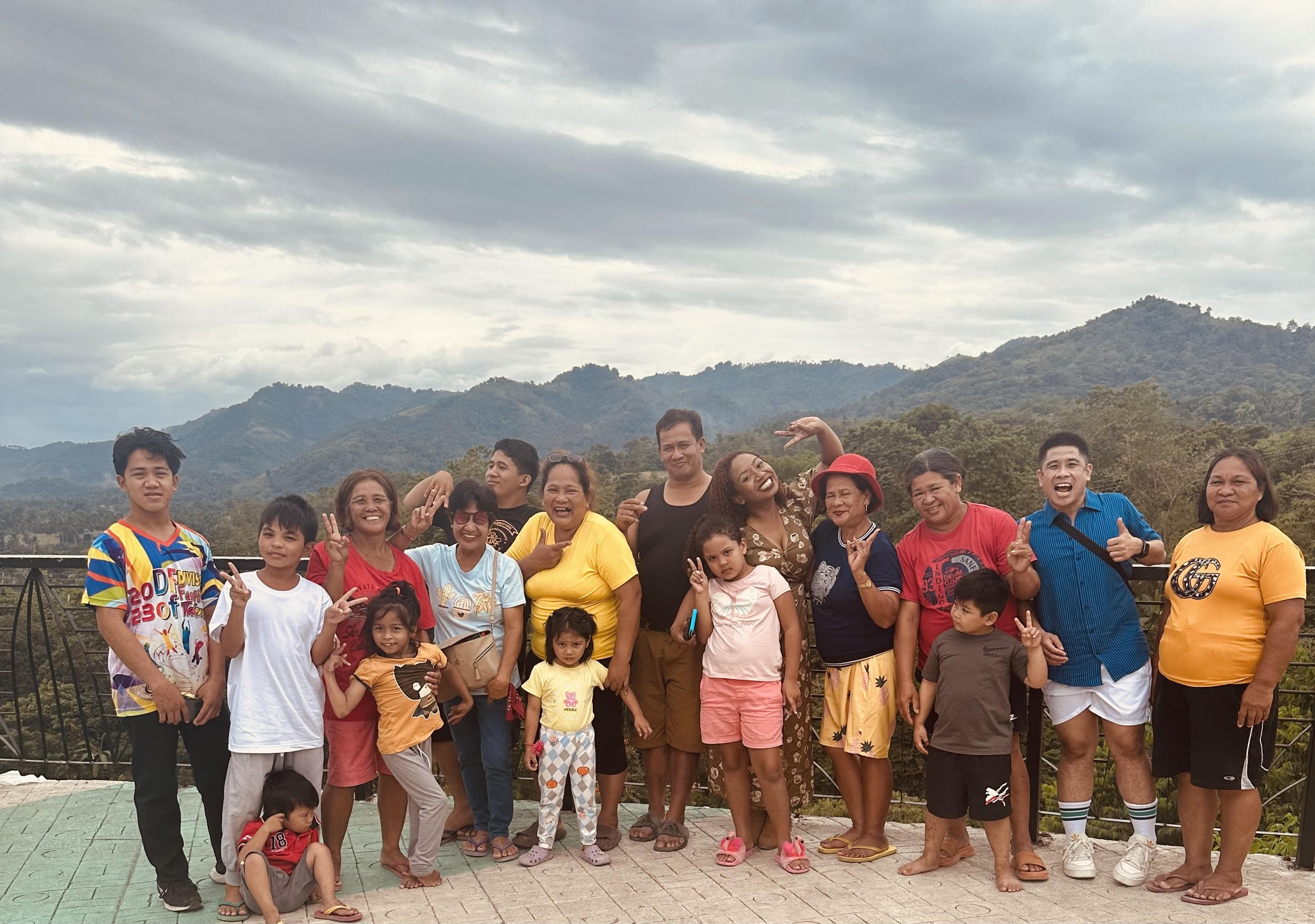Sojourn to Truth-Telling in My Blasian Reality
/My mother and I in 2010.
Truly, a force. And I didn’t understand much about death when I lost her.
Mothers are remarkable in the way that they can push your buttons. My mother was Queen of this. Always molding me into what she needed me to be, always dictating the course of action in the problems our large Edaya family faced. Always having her hands in everyone’s business. Always able to make people submit to her. Swept up by her.
Then there was I, the wayward child. Her only child. And in her angst she would always say, “But I’m the mother here! When you become a mother, then you can make up your own rules!”
My mother and I (I have a huge birthmark on my left arm) (1994)
My cousins and I - Philippines childhood (1993)
I had a Black father and a not-so-traditional Filipina mother. Jocelyn “Jojo” Villanueva Edaya was not one to be crossed or mocked, because to do so would entail a life of immense suffering and grief. I pleased her in all the ways I could. I took my studies very seriously, as the expectation is in almost all Filipino households. In Philippine culture, people like me who were regarded as lacking in the realm of aesthetics because we weren’t “fair enough,” were highly encouraged to funnel their energies into the opportunities that education had to offer. I spent numerous hours in my childhood, at the tender age of 12, frozen stiff by homemade bleaching creams because my aunts didn’t want me to stick out. Paano na lang yan Elaine if alam nila foreigner ka, baka ma-kidnap ka pa for ransom, anong gagawin natin aber? (What now, Elaine? If people find out you’re a foreigner you might be kidnapped for ransom. What are we going to do?) Though the sentiments of being easily flagged as a foreigner in the small town of Santo Niño where I was the first—and possibly the only — Black person most people have ever seen in their lifetime, my susceptibility to kidnapping was scant at best. In the minds of my titas (aunts) back then, they just wanted me to blend in a little bit more. “For my own good!”
With my aunts and cousins (2012)
To be Black in the Philippines is like having a halo. Unlike the United States, I never had to prove my worth or intelligence; these things were a given because I’m an American citizen. I never feared being executed like George Floyd, or Rekia Boyd just because my skin color shone with gold and velvet amber. Growing up, I realized, Black people like me always have to prove ourselves as worthy of dignity here in the United States. How many college degrees do I need to gain some respect in the country of my birth? And two Ivy League degrees later, I realized that my passions should’ve been enough. The written word was all I needed to invest my energies in. Colored girls should be encouraged by the world to become legends in the field of their passions regardless of their looks. Regardless of their color. That’s the kind of future I wish to see for my daughter, and all the little girls who live anywhere in the United States.
My mother raised me as a single mom, but the love and affection I received was never lacking. Though there certainly were yearnings of affection that went unduly unrequited due to her responsibilities as an OFW, I understood from a very young age that the concept of sacrifice was a condition of progress. I spent 14 years living in the Philippines without my mother. Her sister Merlyn “the Pastora” Edaya Miro, whom I call my second mother when I resided in a large pink house my mother built and designed in the Philippines, raised me with the word of God. It is to the virility of the American Dream that we owe the elevated comforts we enjoy in our motherland. My mother’s absence in my childhood was never questioned as this is the unfortunate reality that the non-western world must grapple with to participate in the gifts and bounties of the globalized western societies.
We are called balikbayans (repatriates).
My daughter and I dressed as Elsa and Cinderella during her Disney cotillion seventh birthday in the Philippines (2024)
As a Black Filipina, I am aware that the path towards achieving American economic hegemony has come at a high price tag for my ancestors, both black and the post-colonial indigenous Filipino. When I praise the ideology of the American Dream, these truths are not lost. I am praising the opportunity to bend this current reality towards the economic justice that people who look like me deserve. The reaction to my existence was either that of great discontent among those who regarded Americans as treacherous, self-interested imperialists. That or a reaction of immense inquisitiveness, of which there were many levels. In my mind I ranked them in accordance to how many personal boundaries were transgressed.
“Growing up, I realized, Black people like me always have to prove ourselves as worthy of dignity here in the United States. ”
“Where are you from?” I always regarded as pretty benign in terms of introductory greetings. Despite the fact that I never really outwardly invited such interaction, polite eye contact on my end was alluring enough to commence the impromptu interviews.
“Where are you from, ma’am?” was followed by a polite “Are you half, ma'am?” To which I would respond affirmatively and volunteer that it is my mother who is Filipina.
“The other half, ma’am?”
“American.”
“African ma’am?”
“American.”
“But Americans have blue eyes and blonde hair like the Hollywood movies ma’am.”
To which I responded with silence. Some would then ask, “Your mother in the military ma’am?” Again always polite, but now at a point of intrusiveness in terms of discerning class status. “No, not military,” I would say. “My mother was a civil engineer and professor here before she left for the States.”
“Wow ma’am, where in the States?”
“New York City.”
“Like the movies ma'am?”
“Yes, like the movies.”
And it was always this question that didn’t make a lot of sense:
Saan ka sa Filipinas, ma’am? “Where in the Philippines is your family living?” I would then proudly beam, “Mindanao.”
During my mother’s childhood, the southern provinces of Mindanao was not a typical place where people aspired for anything like the United States. I could typically tell if the person interviewing me was from either the north or south based on how they reacted to this question. Most people from the capital of Manila regard Mindanao as backward, poor, and full of hicks. They typically respond with a dishonest smile and horror in their eyes when I say I am from there because the media has painted Mindanao as dangerous. In fact, the U.S. State Department still has an active travel warning against American travel to my homeland in Mindanao, South Cotabato. Because of the color of my skin, people would then conclude,
“Are you Muslim then? Be careful the food has pork.”
The conclusion assumes that I must be the kid of a datu, a rich Muslim tribal chief, or some other type of Muslim royalty. This was not true of course. But there have been times where I did just indulge and pretend to be the person people needed me to be in that very moment.
Ang galing naman ng life mo maam, gala-gala lang. “Your life seems to be a never-ending vacation, I wish I had that too,” they would say.
“Oh, no, no. I’m just passing through,” I’d say with a smile.
“Can I get a picture with you?” “Can I get an autograph?” “Can we be pen-pals?”
My family and I after visiting PacMan's resort (2023)
I endured variations of this conversation throughout my childhood. These were the conversations I would be greeted with no matter what corner of the world I found myself simply engaging in the act of existing. Anywhere there was a touch of the Philippine diaspora, the routine sketch that is my life was the same. The same conversation happened in China. The same in Portugal. The same in Spain. The same in France. The same in Curaçao. The same in Germany. It’s a song and dance that is a piece of home wherever I go. To be honest, maybe these were conversations I invited myself to when I decide to speak in Tagalog or Ilonggo every time I hear the music of a Philippine accent embellishing the English language with the tunes of my hometown glory.
My dream is to be just as divine as my mother used to be.
Like a waterfall.
Elaine Joy Edaya Degale is a Black-Filipina writer and lecturer at community colleges within the City University of New York (CUNY), and has an Ed.M. and M.A. from Teachers College, Columbia University.
She graduated cum laude from Mount Holyoke College where she studied International Relations and Development, and continues to support literacy and food programming efforts in indigenous communities through her Community-Based organization, OperationMerienda.org.








